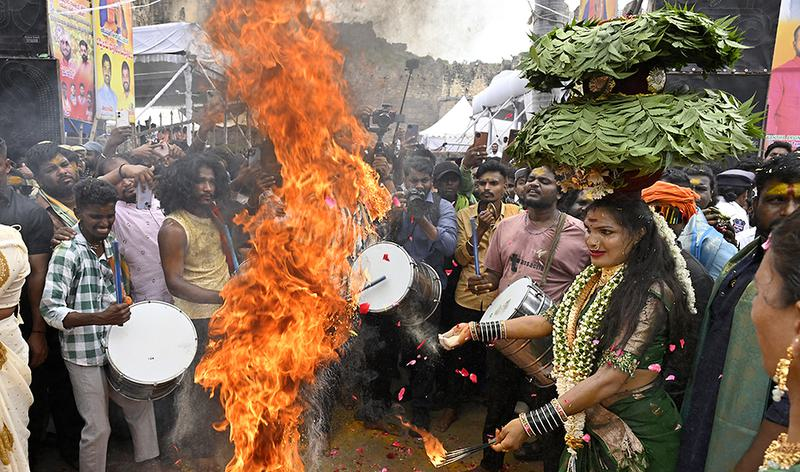Font size:
Print
Bonalu
Month-long Bonalu starts in Hyderabad
Context: Month-long Bonalu festival has started in Hyderabad’s Sri Jagadambika Ammavari Temple at Golconda Fort.

What is Bonalu?
- It is a Hindu festival dedicated to Goddess Mahakali, celebrated predominantly in the state of Telangana, especially in the twin cities of Hyderabad and Secunderabad.
- The festival takes place annually during the Telugu month of Ashada Masam, which typically falls in July or August.
What is the Meaning and Origin?
- The word “Bonalu” comes from the Telugu word Bonam, meaning “meal” or “feast.”
- This refers to the special food offerings prepared for the goddess as a form of thanksgiving and devotion.
- The festival’s origins trace back to the early 19th century during a deadly plague in Hyderabad and Secunderabad.
- Locals prayed to Goddess Mahakali for protection, promising offerings if the plague ended.
- When the epidemic subsided, the tradition of Bonalu began as an annual expression of gratitude.
What are the Key Rituals?
- Bonam Offering: Women prepare rice cooked with milk and jaggery in new brass or earthen pots, decorated with neem leaves, turmeric, vermilion, and a lit lamp. These pots are carried on their heads to temples, where the offerings are presented along with bangles and sarees to the goddess.
- Pothuraju Procession: Pothuraju, considered the goddess’s brother, is represented by a man who leads the processions, dancing energetically to drumbeats and symbolising strength and protection.
- Rangam: A ritual where a woman, believed to be possessed by the goddess, enters a trance and delivers oracular predictions for the community.
Important Venues
- Sri Jagadambika Ammavari Temple, Golconda Fort: The festival traditionally begins here with the offering of the golden bonam.
- Ujjaini Mahankali Temple, Secunderabad: Hosts one of the grandest celebrations, especially on the third Sunday of Ashada Masam.
- Other Temples: Celebrations are also held at various other temples across Hyderabad, Secunderabad, and Telangana, each with its unique local customs.


